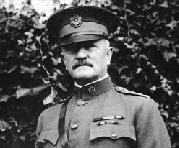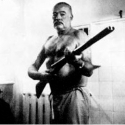|
GreyjoyBastard posted:
i posted my last anglican-exorcism story in this very thread, go look for it
|
|
|
|

|
| # ? Jun 12, 2024 22:25 |
|
for anybody not aware of it, the "put dogs in old paintings" photoshop thread has some entries that are very relevant to this thread https://forums.somethingawful.com/showthread.php?threadid=3872778
|
|
|
|
Shot in the dark- I'm doing a research project (for my own edification because I am a NERD) comparing the Qabala of Aleister Crowley's Thoth Tarot and modern Jewish understandings of Kabbalah. Problem is I can't find modern Jewish interpretations, or rather, just looking on Amazon doesn't give me the tools I need to make informed decisions. (God, I miss having access to my university's library and databases...) I am aware that for many the Kabbalah is esoteric, but I know there are teachers who are in the lineage and write and teach on the subject. Anybody have any leads? Any help is appreciated.
|
|
|
|
HEY GUNS posted:i posted my last anglican-exorcism story in this very thread, go look for it EXORCISM CHAT, EH? https://soundcloud.com/chapo-trap-house/episode-252-rod-drehers-the-exorcist-feat-brett-payne-and-bryan-quinby-10918
|
|
|
|
Thirteen Orphans posted:Shot in the dark- I'm doing a research project (for my own edification because I am a NERD) comparing the Qabala of Aleister Crowley's Thoth Tarot and modern Jewish understandings of Kabbalah. Problem is I can't find modern Jewish interpretations, or rather, just looking on Amazon doesn't give me the tools I need to make informed decisions. (God, I miss having access to my university's library and databases...) I am aware that for many the Kabbalah is esoteric, but I know there are teachers who are in the lineage and write and teach on the subject. Anybody have any leads? Any help is appreciated. in the first place you're too young
|
|
|
|
fwiw I had a girlfriend who was a thelemist and hermeticist, and it seemed to me at the time that Crowley had more or less lifted his basic sephirothic understanding from lurianic kabbalism. Crowleys belief system has much heavier emphasis on symbolism in all it's aspects, so it's probably "normal" kabbalah with elementalism and magick tacked on.
|
|
|
|
happy halloween motherfuckers
|
|
|
|
Never change, Russians! In Halloween news, a wiccan friend of mine called me yesterday to say happy new years I don't know what's up with his neo-victorian moon religion, but my new years eve is the 21st of december.
|
|
|
|
Tias posted:Never change, Russians!
|
|
|
|
Pfft. We have (((four))).
|
|
|
|
Are they jewish?
|
|
|
|
Yep. New Year for the Counting of the Reign of Non-Jewish Kings (1st Tishrei), New Year for Trees (15th Shevat), New Year for the Counting of the Reign of Jewish Kings (1st Nisan), and New Year for Animals (1st Elul).
|
|
|
|
why do the trees need one
|
|
|
|
HEY GUNS posted:why do the trees need one If you went and asked them, they'd ask why humans need one. As one said to me, we're striplings that happen much too fast to really weigh in.
|
|
|
|
HEY GUNS posted:why do the trees need one It's mostly a harvest festival, like all the other Jewish festivals that aren't "They tried to kill us, we survived, let's eat".
|
|
|
|
I don't know that I will ever be a Christian. However, for a long time I've been thinking about the obstacles and objections that make it difficult for me to entertain the idea of God; you could say it's an effort to take the catechism's claim that you can reason your way to God's existence seriously. One of the biggest obstacles for me has been the existence of suffering, and especially the notion that God would inflict suffering on humanity as punishment. So much of Catholic theology seems completely steeped in this idea that wrongdoing requires the infliction of pain as payment, and that just revolts every moral instinct I have. Similarly, many of you in this thread have made valiant attempts to explain suffering to me (as I've hardly been quiet about this objection.) And I may not have properly expressed my appreciation for your efforts; I am grateful to all of you for trying, and particularly to Deteriorata, whose analogy of piano lessons (the suffering isn't as bad as we think it is, it's something we in a sense volunteered for even if we can't see it now, the payoff will be more than worth it) is one that I still absolutely cannot accept, but suggested the solution that occurred to me recently. As an atheist (and setting aside my deeply ironic urge to anthropomorphize the universe), I understand pain as something that exists because living creatures need a way of understanding when something is wrong or dangerous. It occurs to me that there's no reason this couldn't be extended to spiritual pain as well. My close Catholic friend tends to describe the world as wounded, and while I really despise suffering, I am able to admit that it would be worse for the world to be wounded and for us to feel no pain -- to have nothing to prompt us to realize that something is wrong -- than for the world to be wounded and for us to suffer because of it. It need have nothing to do with deserts -- it's simply that we cannot have a painless paradise in which we are separated from God because that would be abandoning us to ignorance. At the same time, God can't make this pain into a specific, enforced awareness that "separation from God" is the problem -- that would basically be coercing us into worship, and His goodness would prevent him from doing that. I have to admit that I've always kind of approached my understanding of God through the metaphor of parenthood, and my relationship with my parents is kind of strange: my parents were kind, loving, supportive, and terrible people. As a consequence I grew up never doubting that people could care for me, and the idea that even the worst people have some good in them isn't that difficult. But it also means that I have a tremendous resistance to moral authority that cannot or will not explain itself, and that for me, any kind of progress towards moral betterment has been synonymous with rebellion. As a result, the notion of God as a corrective parent has been both counter-productive, but also one I can't entirely seem to get away from. But this also gives me an idea of the Incarnation and the Crucifixion as a solution to the problem of how to reach humanity without coercing us. Christ's embodiment and subsequent sacrifice could be understood as God showing us that this is safe -- rather than telling us "eat your vegetables!" (so to speak), He took on human life and human frailty as an example. The distinction between being able to reason your way to God's existence but having to arrive at Christ-as-God through faith perfectly threads the needle between coercion and leaving us in ignorance; because he was human, Christ communicates to us without compelling us to believe, and because He is God, His message is exactly what we need to hear. And his human experience is also completely and utterly authentic; He is able to cry out "father, why have you forsaken me" and experience the same despair we do -- and overcome it. The example would not be complete without this. This is probably completely heretical from a Catholic standpoint, since as I understand it the Catholic understanding strongly emphasizes that sin requires payment or even retribution -- pain is deserved as a consequence of wrongdoing, in order to satisfy God's anger towards it, rather than simply being the reification of the awareness that something is broken and wrong. But just the same, I see this line of thinking as the removal of one of the obstacles between me and the possibility of ever being a religious person, and I'm curious what you all think, and whether this lines up with any existing theology. Tuxedo Catfish fucked around with this message at 15:28 on Nov 2, 2018 |
|
|
|
Tuxedo Catfish posted:I don't know that I will ever be a Christian. However, for a long time I've been thinking about the obstacles and objections that make it difficult for me to entertain the idea of God; you could say it's an effort to take the catechism's claim that you can reason your way to God's existence seriously. That is a completely Catholic thought and I’m glad it brings you light.
|
|
|
|
Read this thread my dudes: https://twitter.com/_F_B_G_/status/1058315229908684801
|
|
|
|
Mr Enderby posted:Read this thread my dudes: those dudes' sleeves are M O O D
|
|
|
|
religions https://www.gq.com/story/one-month-in-los-angeles-cult-of-betterness
|
|
|
|
My father, a good man but not at all religious, was approached by a guy on the street and was asked, “hello, sir, would you like to come to a self-improvement meeting with me?” (This was early 80’s) Surprisingly, Dad agreed, despite not being the most social person. When he told me the story he said, “Thirteen Orphans, they were all sitting in a circle chanting over and over ‘Aya yoho renge oh,’ it was a weird cult...” About a decade after he told me the story, when I was then in college, I heard a recording of devotees of Nichiren Buddhism chanting “Namu Myoho Renge Kyo.” I immediately sent it to my father with the note, “Not a cult, just Buddhists!” He responded “A decades long mystery solved.” I can’t believe how close Dad got to remembering the chant after all those years considering he left as soon as he got there. Thirteen Orphans fucked around with this message at 21:31 on Nov 2, 2018 |
|
|
|
I would really appreciate prayer tonight. After my last chemo round I picked up a sinus infection I'm having trouble with, my low (100.4) fever is back tonight. My wife is a nurse, she says I should be ok but its still scares me because I can't sleep well when I'm like this and everything else gets harder. I'm just begging God for a period of good health so I can make some changes and also draw closer to him, especially in patience. Thanks in advance.
|
|
|
|
Pershing posted:I would really appreciate prayer tonight. After my last chemo round I picked up a sinus infection I'm having trouble with, my low (100.4) fever is back tonight. Lord Jesus Christ, Son of the Father, Have Mercy on Your Suffering Servant. Praying for you, Pershing.
|
|
|
|
Tuxedo Catfish posted:I don't know that I will ever be a Christian. However, for a long time I've been thinking about the obstacles and objections that make it difficult for me to entertain the idea of God; you could say it's an effort to take the catechism's claim that you can reason your way to God's existence seriously. I appreciate you, too, Tuxedo Catfish. Because of the things you and others have said in this thread, it seems clear to me that there's much harm in praying and worshiping dualistically, which is the majority of the apparent religious practice I've seen or heard of. I think you've said two particularly insightful things. First is the consideration of pain as a signal of wrongness and danger. If we're thinking non-theistically and not personifying the cosmos, we can still see that the best use of pain is as a signal, a navigational instrument. Without assigning blame to any actor, we can see that life is a phenomenon that has fragility. For example, it can only tolerate so much rapid deceleration. It makes sense then that smashing my face is painful, because if it's powerful enough, it will end up stopping many living processes. And I'd say you're right to recognize complex pain in humans, what you called spiritual pain. I would say that the suffering you experienced by growing up in a family that practiced a dualistic way of teaching their kids may be warning you about a wrong way to live. If you can examine the wrongness without being re-wounded by it, in other words by retaining the salubrity you have now, it may be very instructive. It is recommended you do that in the company of folks who've well earned your trust. The second thing that was especially thought-provoking was your thoughts on the Christ as the answer to the painful conundrum of God as a separate entity. With the Incarnation, now we don't have to see it as only about the corrective and remote parent. Now it's about the family: parent, child, and their relationship as an undivided phenomenon. And to go even further, there is a slim but persistent minority of Christians (and Catholics, even) who would encourage you to see the Christ as not only just Jesus of Nazareth (although the Christ is also Jesus of Nazareth). They would encourage you to see the Christ as everything, as the whole of the cosmos undivided, between all alphas and omegas, which includes every kind of being. The Christ includes all suffering, the start of all suffering, and the lasting redemption of all suffering. The stories of the life of Jesus of Nazareth may be very instructive on how to realize, manifest, and incarnate this universal Christ. What I can say is that if someone burns you as a heretic and not me, that'd be messed up, and I'd suffer (albeit less than you).
|
|
|
|
I just sat through a grueling but amazing 6 hour lecture on the many and varied afterlives recounted of in norse mythology. AMA (particularly about valkyries, shining lands, heathen ghosts or sagas, though)
|
|
|
|
Tias posted:I just sat through a grueling but amazing 6 hour lecture on the many and varied afterlives recounted of in norse mythology. So what's the actual deal with Hel? What kind of afterlife is she dealing with? Is Valhalla specifically 'you stick here until the end of days when you get into an even bigger fight' like it's usually portrayed in popular stuff? How do ghosts happen? What are Valkyries?
|
|
|
|
Tias posted:I just sat through a grueling but amazing 6 hour lecture on the many and varied afterlives recounted of in norse mythology. How is Valhalla distinguished from Folkvang? How is it determined what souls of the dead go where? How much do we know about traditional Norse believes about death and the lands of the dead, and how much of it has been Christianized? I know there's the thought that, like a lot of the Ragnarok narrative in the Prose Edda, which was written down after Scandanavia had become Christian, brought in a bunch of Christian concepts about the afterlife and the second coming. Is Gimli just the Christian heaven?
|
|
|
|
Mr Enderby posted:Read this thread my dudes: an extremely anglican thread
|
|
|
|
Night10194 posted:So what's the actual deal with Hel? What kind of afterlife is she dealing with? Epicurius posted:How is Valhalla distinguished from Folkvang? How is it determined what souls of the dead go where? How much do we know about traditional Norse believes about death and the lands of the dead, and how much of it has been Christianized? I know there's the thought that, like a lot of the Ragnarok narrative in the Prose Edda, which was written down after Scandanavia had become Christian, brought in a bunch of Christian concepts about the afterlife and the second coming. Is Gimli just the Christian heaven? I took a Norse Mythology course when I studied abroad in Copenhagen*. From an academic context we know next to nothing about the daily practice of pre-Christian Norse religion. ibn Fadlan's account is the most credible early source that exists: https://content.ucpress.edu/chapters/12938.ch01.pdf *I lived with the most awesome old lady ever in the southern suburb of Glostrup. Her retirement consisted entirely of going to dances and hosting exchange students. She was a teenager during the Nazi occupation of Denmark and often recounted how Danes would give Nazis the cold shoulder. Denmark was often held up as a model "Aryan" state but the Danes were extremely passive-aggressive in their resistance. I don't mean to diminish Tias' contributions in the slightest, but I think it's important to point out that Norse paganism largely died around the 1100s and the modern conceptions thereof are reconstructive.
|
|
|
|
Reconstructive or not, I'm curious to hear what he heard. Almost all religious stuff is fascinating to me, and even if it's a wholly modern reconstruction what they say about the stories is still of great interest.
|
|
|
|
Mr Enderby posted:Read this thread my dudes: The amount of joy this brings me cannot be overstated.
|
|
|
|
Pershing posted:I would really appreciate prayer tonight. After my last chemo round I picked up a sinus infection I'm having trouble with, my low (100.4) fever is back tonight. Feel better, Pershing. I actually stuck a little prayer request on the board in the cathedral for you in particular (and the thread in general) last week when I was in there, so there are a few people in your corner over here.
|
|
|
|
HopperUK posted:Feel better, Pershing. I actually stuck a little prayer request on the board in the cathedral for you in particular (and the thread in general) last week when I was in there, so there are a few people in your corner over here. That's a good idea! First time I went to a service with incense today. Fortunately I was up in the loft next to the organ so I had two fans to help me breathe. They seemed a little keen on transubstantiation (for an Anglican church) and it reminded me of the response from the extremely quotable Queen Elizabeth I when quizzed by her captors when the whole Roman/Reformed Catholic showdown was happening in England: 'Twas God the word that spake it, He took the bread and brake it, And what the word did make it, That I believe and take it. Which I think is an excellent piece of church diplomacy.
|
|
|
|
Night10194 posted:So what's the actual deal with Hel? What kind of afterlife is she dealing with? It turns out, the actual deal with Hel is being the goddess of A afterlife, not the catch-all place for people who don't go to Valhóll, and all the terrible things we think we know (a dreary place full of loneliness and suffering, the more you eat the more hungry you get, and the cold burns you) was added by Snorrí, which more or less means it's complete poo poo. There are many other accounts of Hel than his, and all the others describe it as lush, peaceful and overflowing, one also speaks of good garments and jewelry and magic beer. The story of her two-sided face may be true, but all her scary aspects and terrible harvesting of the saddest fates is made up from whole cloth. It seems to be the most often mentioned afterlife, and, takes in all the folks who aren't men who die in combat. E: We know Hel is located "Down and North", and there's a beautiful woman, possibly a dísir eller valkyrie, guarding the bridge that leads to Hel. Dead men make a feather soft sound walking across it, but Gods and the quick (live) men thunder like a host of riders, which is how she knows who is allowed in and who isn't. quote:Is Valhalla specifically 'you stick here until the end of days when you get into an even bigger fight' like it's usually portrayed in popular stuff? Yeah, you live in Valhalla until the eschatological goings on are fulfilled. We don't know a lot about life in Valhalla, but you probably get to stay there. quote:How do ghosts happen? Uh.. it'd probably be easier to guess at how they don't happen. One guy, Killer-Ram, was so unpleasant they buried him according to his own wishes, because they're afraid he'd be even more trouble dead than alive (buried in head height standing up, under the entrance to his kitchen, so he could keep tabs on his home). Unfortunately he rose anyway and haunted the gently caress out of the area, until he was burned (also, the ashes were inhaled by nearby cows who become possessed and started poo poo until they too were burned). A surefire way to get ghosts is to rob a barrow hill, though you can carry all the poo poo you want if you don't take something dear to the departed. If you do, it turns into a sick-rear end wight and fights you with it's magic weapons. quote:What are Valkyries? Good questions! There are very different accounts. Voluspa and Grimnismal paint them as cup-bearers, whose job is more or less exclusively to carry brew to the einheijrer and in some cases the Gods themselves. Vřlundsmĺl says they can change into swans, and even when scored by mortal men, they eventually fly off in battle dress to go do valkyrie things. Here, they know how to talk to birds, which is a common signifier of great magical power in old norse thought. And then there are of course the classical narrative of getting dead folks for Odin. The mythic king Helgi leads a charge, then suddenly finds himself talking to Valkyries, which must have meant that things have gone south. Epicurius posted:How is Valhalla distinguished from Folkvang? How is it determined what souls of the dead go where? How much do we know about traditional Norse believes about death and the lands of the dead, and how much of it has been Christianized? I know there's the thought that, like a lot of the Ragnarok narrative in the Prose Edda, which was written down after Scandanavia had become Christian, brought in a bunch of Christian concepts about the afterlife and the second coming. Is Gimli just the Christian heaven? They seem at first pretty equal, both are God-homes situationed rather close to each other and full of light and good cheer. The only narrative we have is that Odhinn and Freja pick half the dead slain in battle, more or less like you imagine a football match between kids at recess. However, many sagas describe people being sure they're going to one or the other, because of their devotion to the God in question. We know sadly little about how much the accounts have been christianized, but in many places (such as Snorris Edda / the younger Edda and Gesta Danorum) it's so blatant that you can tell the narrative is wholly christian. For instance, if the Gods judge you to go somewhere because of your actions (Norse gods don't do that) or if an afterlife is really terrible for some sorts of people, you're dealing with Snorri. We know people expected to go an afterlife, that they could exist simultaneously as a corpse and a being of spirit, and travel back and forth. If you messed with someone, or missed them excessively much, or, of course, had hosed them over while they were alive, you could also be dealing with a gengangr (re-walker / undead) situation. As I mentioned earlier, people seem to have believed that if they were particularly devoted to one God, they would go to said God when they died. This seems to be most prevalent with Odhinn and Freja. Our sources give us up to 12 different death-realms, so it was probably different from area to area, and time to time. Prior to 500, swamps and bogs were the primary idea of a death-realm, and it was where you went to sacrifice and bury people. We know Frigg and Sága are associated with Fenhalr ("glade/Bog-hall") and Sökkvabekkr ("Sunkenbenches"), which is very likely referring to Bog-worship. One account says that there's a place called NiflHel which is for people who die in Hel, so according to those folks you could die out of Hel  Others say that "in the old days" people believed in reincarnation, that you came back as another human being after you had been dead for a while. Others say that "in the old days" people believed in reincarnation, that you came back as another human being after you had been dead for a while. Gimlé is definitely corrupted by Snorrí to serve as the christian paradise, in a dichotomy with Hel as eternal damnation. The source that isn't by him just says it's where those who survive Ragnarók hole up, nothing more. Pellisworth posted:I took a Norse Mythology course when I studied abroad in Copenhagen*. From an academic context we know next to nothing about the daily practice of pre-Christian Norse religion. ibn Fadlan's account is the most credible early source that exists: https://content.ucpress.edu/chapters/12938.ch01.pdf Yeah, it if was unclear, I am a reconstructionist, the course I took was an academic one in what historical and saga accounts say about the afterlives. I personally believe in Hel and also in reincarnation, but it's my own deal and not something you can gather from sources. Our last priests died a thousand years ago, and archeological sources are nearly all inconclusive, and nearly all corrupted by fanatic christian authors like Sturlasson. I heard about Ibn Fadlan yesterday by the way, great stuff! One of the rituals over the dead viking has his slave (who has volunteered to die with him) being lifted over an arch, after which she says she sees her master in a lush "paradise" calling out for her. Tias fucked around with this message at 16:09 on Nov 4, 2018 |
|
|
|
Name Of The Rose: In The Desert is still going on and nobody has any more ideas than they did when the murder happened (first murder? someone else has turned up dead, an apparent suicide) https://www.theatlantic.com/international/archive/2018/11/coptic-christian-monastery-murder-egypt/574597/ edit: this article is about how the copts in the US are undergoing some of the same changes we did back in the...70s (?) to the present, with the added wrinkle of a brand new wave of Middle Eastern Christian immigration. https://www.theatlantic.com/politics/archive/2018/03/coptic-church/555515/ HEY GUNS fucked around with this message at 18:15 on Nov 4, 2018 |
|
|
|
I saw a twitter post in the CE thread that I wanted to share here. https://twitter.com/pastormykmac/status/1058916541268287490/photo/1 I'm sure I already know most peoples opinions on this but, as a someone not terribly familiar with bible verses, I am wondering what the significance is of the verse being quoted.
|
|
|
|
Shaddak posted:I saw a twitter post in the CE thread that I wanted to share here. It's a reference to Jesus... "The Word became flesh and made his dwelling among us. We have seen his glory, the glory of the one and only Son, who came from the Father, full of grace and truth" Jesus is the Word made flesh.
|
|
|
|
Well that's the most base idolatry I've seen in a good long while.
|
|
|
|
Shaddak posted:I saw a twitter post in the CE thread that I wanted to share here. In short, it is about the Son, the second person of the Trinity, becoming a human being in the person of Jesus. E:fb
|
|
|
|

|
| # ? Jun 12, 2024 22:25 |
|
Epicurius posted:It's a reference to Jesus... Yeah, "the Word (logos) became flesh" is an explicit reference to Jesus Christ, the Son of God. If you interpret that billboard at face value, then Trump is the second coming of Jesus or something, the literal incarnation of God in human form.
|
|
|



























